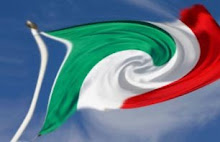 There's much talk about a return to nuclear energy in Italy. After shutting down its (few) atomic plants in 1987, as Italians approved a referendum still in the wake of the Chernobyl accident, the government now wants to go nuclear again.
There's much talk about a return to nuclear energy in Italy. After shutting down its (few) atomic plants in 1987, as Italians approved a referendum still in the wake of the Chernobyl accident, the government now wants to go nuclear again.Now, I'm not biased against nuclear. There are pros and cons: it provides cleans energy, security has improved - but plants are expensive, they require huge investments, and the problem of waste-disposal is unsolved. But the point is: while the rest of the world is investing in new forms of energy - wind, solar, biomass, biofuels, geothermal - Italy is pursuing an old idea.
Other countries are betting heavily on nuclear energy: the UK is planning 8 new plants, and in the US John McCain has envisaged 45 new plants if elected. But in those countries, heavy investimens on new energy are already in place. And the cost of energy produced by solar, wind, biomass, thanks to (non-existent in Italy) R&D, is going steadily down. While the cost of uranium - a finite resource - has risen 19-fold since 2000. The future, it is widely assumed, belongs to renewable energy.
With its southern regions enjoying sunny days for most of the year, Italy has "one of the largest potentials for solar energy in Europe", reckons the US Energy Information Administration, which adds that "analysts estimate that Italy could have the largest, per-capita geothermal potential in the world". Why don't politicians talk about this, instead of squabbling on TV about secondary issues?
With no oil and gas on its territory, the country pays the highest electricity bills in Europe. Higher than Germany, which has put a renewable-energy tax on electricity bills since the early '90s, and now is one of the top producers of wind and solar energy in the world. And 40 percent higher than France, which thanks to its nearly 40 nuclear plants has an excess capacity, allowing the country to export electricy to - yes - Italy.




No comments:
Post a Comment